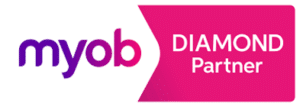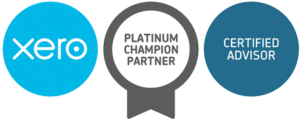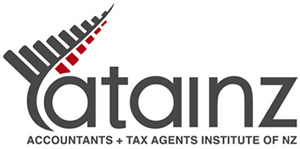Helpful Tips for your Business
Starting off on the right foot always makes your accounting easier. Even if you have been in business for a while, have a quick read over these as a refresher.
Simply click on the topic you want to learn about and you will be directed to the full explanation.
Motor Vehicles
Home Office Claim
Business Bank Accounts
Annual Returns for Companies
Introduction of Personal Assets
Planning for Income Tax
Planning for ACC Levies
Penalties for Late Filing and Paying Taxes
Contractors – Schedular Payments/ Withholding Tax
Stock
Subscriptions, Waste Disposal, Parking Meter & Obsolete Assets
Motor Vehicles
There’s 2 main ways to claim costs associated with using a vehicle for business purposes. It’s important to understand these to ensure you are keeping the right records for your end of year accounting.
Mileage
You can claim vehicle expenses using IRD’s reimbursing rate, (X cents per kilometre) but you’ll need to keep an ongoing log of ALL your business trips ALL year round. The total mileage will be claimed at the current year’s rate in your financial returns. It is not necessary to keep any motor vehicle expense receipts or invoices if using the mileage claim as the reimbursing rate is designed to cover these.
If claiming vehicle expenses using the mileage claim method, GST claims are not applicable.
The amount to claim is based on the rates for the financial year that we are preparing.
To help make this process a little easier we’ve had some small vehicle logbooks printed and these are available to clients for free. These are useful for both business and rental property owners.
If you would like one (or more for multiple vehicles) please ask, we’ll pop it into the post asap.
Percentage of Actual Costs
You can claim vehicle expenses including fuel, parts, repairs and maintenance, insurance, registration, depreciation and so on. You will need to log all your vehicle use for three months (once each three years) and identify usage as business or personal. The business use proportion is used to claim your motor vehicle expenses for the next three years, at which time you are required to keep another log for three months.
Tips
- If you have a busier time of year, do your 3-month log then for a higher expense claim.
- Try to keep private use to a minimum while doing 3-month logs.
- Travelling from home to work is deemed as private use by IRD.
- Generally actual mileage works well for property and actual cost for business.
- To make the process a little easier, we have free small, printed vehicle logbooks available FREE for Kiwitax clients.
Fringe Benefit Tax (FBT) for Companies
When a company owns a car, it can claim 100% of all the expenses, however the company must adjust for Fringe Benefit Tax. The company will also have to calculate GST on the fringe benefit.
For ordinary company owned vehicles which are available for private use, keep a log to record each full 24-hour day the vehicle is not available for private use (e.g. out of town, being serviced). These days will then be exempt from Fringe Benefit calculations.
There’s no need to keep an ongoing logbook of all travels in the vehicle but do keep all receipts and invoices for vehicle costs to claim. An FBT calculation will be done to account for 20% of the vehicles cost as private and all running costs can be claimed.
Claiming 100% of Motor Vehicle Expenses
If you have a vehicle that is only used for business purposes, you can claim 100% of the running costs and depreciation as an expense.
Generally, you will need to have another vehicle available for private use, the business vehicle needs to be stored at the workplace and you should keep a logbook for 3 months to avoid paying FBT.
Home Office Claim
If you use an area of your home for business purposes, you are entitled to make a Home Office deduction.
If you use an area of your home for business purposes, you are entitled to make a Home Office deduction. You can claim a % of Rent, Interest on Mortgage, Rates, Insurance, Power and Phone and Internet.
To calculate your home office, you will need to measure the area of your home that is used for business use only, and then divide this by the m2 area of your total dwelling – for instance, 10m2 / 100m2 = a 10% home office claim. If the garage is also used e.g. storage, then this area should be included as well. Regarding the costs, please send through details of these when we prepare your accounts.
Business Bank Accounts
A brief rundown on banking systems based on your ownership structure
Companies
All Limited Liability Companies should have their own company bank account in the name of the company. A company is a separate legal entity, so it needs to have its own banking systems.
Trusts
If you are using a Trust for your trading activities, the Trust should have its own separate bank account – as the trust is also a separate legal entity.
Partnerships
Partnerships as well require their own bank account – trading activities of the business should be kept separate as much as possible from the partners personal activities.
Sole Trader
If possible, or if you have enough business transactions, you should get a separate bank account for your business trading activities. However, if you are going to only have a few business transactions each month, you can use your personal bank account for these to go through – you just need to keep a record of what is business and what is personal.
With all business trading entities, you can use the business account to pay some personal costs – these become drawings from the business. However, where possible, it is wiser to transfer (by internet/phone banking or automatic payment) a lump sum to your personal bank account and use that for your own spending.
When we are preparing your financial accounts – it is easier for us if your business account doesn’t have too many personal entries – as we need to work through these and review them – which could be avoided by lump sum transfer transactions rather than lots of individual personal transactions. It also helps to avoid confusion with expenses that are business related but can look like personal spending.
Annual Returns for Companies
If you have a Company, the Ministry of Economic Development requires an annual return to be filed each year with the Companies Office.
If you have a Limited Liability Company, each year the Ministry of Economic Development requires an Annual Return to be filed with the Companies Office. This ensures your company is kept ‘alive’ for another 12 months.
The Companies Office send a reminder in the month that the return is due. You are required to answer a few questions about your company, shareholder & director details. The Companies Office charge $45 ex GST for each return.
If we incorporated the company for you, they would likely contact us directly and we will check your details and file this on your behalf for a small fee.
If you fail to file your Annual Return on time (after a couple of warnings), your company will be struck off the Companies Register so is no longer a valid New Zealand Company. The cost for reinstatement is high so it’s important to ensure your return is filed each year.
Introduction of Personal Assets
When you first start out in business, you may have assets you already own that you will be using for your business.
If you use any personal assets for business purposes a claim can be made. When starting in business you may have a few to introduce such as a computer or tools you have acquired while working as an employee.
You may also use a percentage of personal assets for business, such as washing machines, vacuum cleaners, dishwashers, lawn mowers etc.
You are entitled to claim the wear and tear on these assets through your business by way of a depreciation claim. Please record details of these assets and the current market value, the date you started trading (or using the asset) and a percentage for business use.
Planning for Income Tax
In business you are taxed on your profit – which is your sales income less your business expenses.
In business you are taxed on your profit – which is your sales income less your business expenses. This is also the same for rental property profits. At income tax time, this profit is then allocated to the owners on paper and is included in their personal income tax returns. However, if you trade with a company structure, some of the profit may be retained in the company for tax purposes.
The current personal tax rates are then applied:
- Earnings of $0-$14,000pa 10.5% tax
- Earnings of $14,001-$48,000pa 17.5% tax
- Earnings of $48,001-$70,000pa 30% tax
- Earnings of $70,001-$180,000pa 33% tax
- Earnings of $180,000+pa 39% tax – from 1 April 2021
- Company Tax Rate 28% tax
- Trust Tax Rate 39% tax
If you have also earned salary and wages during the year, the profit from business will be added to this total – so you may cross into the next tax bracket. For example, you might earn tax paid wages of $45,000 from employment plus have a business profit of $10,000 for the year. This $10,000 profit will be taxed as $3,000 @ 17.5% and $7,000 @ 30% – because you go past the $48,000 threshold where your tax rate changes.
During the year if you can put aside a percentage of your estimated profit into a tax savings bank account, this will start accumulating so that when your payment is due the funds are already there earning interest.
If you have no other earnings other than business the tax to put aside will be 10.5% of estimated profit up to $14,000 then 17.5%, 30% & 33% respectively. It would be wise to do this on a regular basis, maybe weekly, or when a client pays, or monthly. If you are unsure of your estimated profit, we can help you work this out, just ask. Alternatively, if you are predominantly labour only earning, then you could put aside this percentage of your sales.
Planning for ACC Levies
ACC Levies for people in business are payable based on the profit generated from your trading activities. They are also payable on the gross wages paid to your employees. ACC Levies are compulsory to cover you and your staff for personal injuries.
Once your income tax return is filed for a year, the IRD will send details of your earnings to ACC who will then generate an invoice based on your earnings and the type of business you are involved in and send this directly to you. It is a good idea to check the industry they have you down under as higher injury risk businesses pay higher ACC levies.
ACC levies are all tax deductible except the earner premium payable by shareholders in a company.
Be warned however, ACC bill for the year that has passed plus the year that is current – 2 years at once! They estimate the current year based on the previous year’s figures, and any square up is made once your second years income tax return has been filed.
ACC does allow the debt to paid off by monthly instalments, however, this will attract interest (currently approx. 6%).
To get an indication of what your ACC levies might be – check out the calculator on their website
https://www.acc.co.nz/for-business/received-an-invoice/estimate-your-levy/.
Once you have checked your classification rate and know how much % per $100 you will pay in ACC levies, it would be wise to put this aside on a regular basis in a tax saving bank account. Usually, the ACC rates range from 3%-10% of profit.
Penalties for Late Filing and Paying Taxes
If you don’t pay your taxes or meet filing requirements on time, you may be charged penalties and interest from the IRD.
Initial late payment penalties are applied in two stages:
- an initial 1% late payment penalty will be charged on the day after the due date
- a further 4% penalty will be charged if there is still an amount of unpaid tax (including penalties) at the end of the 7th day from the due date.
- Every month the amount owing remains unpaid, a further 1% incremental penalty will be added.
If it’s your first late payment in a 2-year period, Inland Revenue may give you a grace period before you incur penalties. You will receive confirmation and your new due date. If you miss the new due date, you will be charged penalties from the original due date.
If you are late filing returns, the IRD may also estimate your tax liabilities by making a default assessment and penalties and interest may be charged on this until you file your returns.
If you are unable to make tax payments on time, the IRD may consider a payment arrangement to pay off your debt. This will stop further penalties being added to your debt, but the debt will still incur interest. If circumstances prevent you from making IRD payments on time, contact us and we may be able to apply for a payment plan to be set up for you.
Penalties for PAYE/Employee information payments
The non-payment penalty is 10% of the overdue amount and another 10% penalty will be added each month an amount remains unpaid. Interest is also payable on unpaid balances.
COVID-19
If you have paid tax late that included interest and penalties, you can request remission of the interest and penalties if your income has been affected by COVID-19. These requests can easily be made through your MyIR login or over the phone.
Penalties for Late Filing and Paying Taxes
If you don’t pay your taxes or meet filing requirements on time, you may be charged penalties and interest from the IRD.
Initial late payment penalties are applied in two stages:
- an initial 1% late payment penalty will be charged on the day after the due date
- a further 4% penalty will be charged if there is still an amount of unpaid tax (including penalties) at the end of the 7th day from the due date.
- Every month the amount owing remains unpaid, a further 1% incremental penalty will be added.
If it’s your first late payment in a 2-year period, Inland Revenue may give you a grace period before you incur penalties. You will receive confirmation and your new due date. If you miss the new due date, you will be charged penalties from the original due date.
If you are late filing returns, the IRD may also estimate your tax liabilities by making a default assessment and penalties and interest may be charged on this until you file your returns.
If you are unable to make tax payments on time, the IRD may consider a payment arrangement to pay off your debt. This will stop further penalties being added to your debt, but the debt will still incur interest. If circumstances prevent you from making IRD payments on time, contact us and we may be able to apply for a payment plan to be set up for you.
Penalties for PAYE/Employee information payments
The non-payment penalty is 10% of the overdue amount and another 10% penalty will be added each month an amount remains unpaid. Interest is also payable on unpaid balances.
COVID-19
If you have paid tax late that included interest and penalties, you can request remission of the interest and penalties if your income has been affected by COVID-19. These requests can easily be made through your MyIR login or over the phone.
Contractors – Schedular Payments/ Withholding Tax
Depending on the work you do, self-employed contractors may be required to have Schedular Payments (or withholding tax) deducted from your earnings.
As a self-employed contractor, depending on the work you do you may be required to have Schedular Payments deducted from your earnings. Schedular Payments is based on a flat rate and is paid to IRD on your behalf by your client, so IRD collects some income tax as you go during the year.
You are still self-employed and can claim costs against your earnings, so this doesn’t change. The main difference between PAYE and Schedular Payments is with PAYE, ACC levies are also deducted as an employee. Schedular Payments has no ACC levies deducted – you will receive a bill from ACC for these based on your yearly earnings.
If you are GST registered, you will need to file your own GST returns and pay the GST to Inland Revenue. Your GST is based on your income before the Schedular Payment is deducted.
IRD has a list of what type of work requires Schedular Payments to be deducted – these are found on the back of the IRD IR330C forms – they mainly relate to labour only in the building industry, agricultural work, commissions for salespeople. If you are unsure of whether this applies to you, please give us a call and we can assist you with this.
Certificate of Exemption
If you are subject to have Schedular Payments deducted, you are able to apply for a Certificate of Exemption from Schedular Payments from the IRD. This means that if approved your client doesn’t have to deduct Schedular Payments from your invoice and you can pay tax yourself at the normal tax due dates like other businesses. This allows you to have the use of IRD money for a bit longer and you have the opportunity to earn interest on it by putting it in a tax saving bank account.
IRD will most likely grant a Certificate of Exemption if all your previous years income tax returns are up to date and know you have no tax arrears.
Please be aware also that if you hire people as contractors that fall under the categories listed on the IR330 form, you are also liable to deduct Schedular Payments from their earnings and pass it onto the IRD on their behalf.
Stock
We would encourage you to keep record of your stock from a business management perspective but for tax purposes it may not be required.
If your stock on hand at the end of the financial year is less than $10,000, and your turnover is less than $1.3million, you don’t need to do a stock take. If you had stock in your accounts at the end of last year, the same figure is used again this year (unless you let us know that is it significantly lower). This means that you aren’t paying tax on stock bought but not yet sold. If it’s your first year – no stock will be recorded in your accounts.
Subscriptions, Waste Disposal, Parking Meter & Obsolete Assets
Some of these expense claims may seem minor – but they all save tax.
Subscriptions
Subscriptions can be claimed if there is a relationship between the subscription and the earning capacity of the business. For example, a self-employed Zumba instructor could claim a gym subscription.
Waste Disposal
Wheelie bins and dump fees can be claimed. Most businesses have some sort of waste products – e.g. paper, food, materials. Getting rid of them is a cost to your business. If you also use the wheelie bin for home let us know a percentage for business.
Parking Meter
Quite often you may need to go into town for business. Parking meter charges can be claimed. Let us know a weekly or monthly amount that you’d feed the meter and we’ll claim it in your accounts for a whole year.
Obsolete Assets
Check your last years’ depreciation schedule. Are there any assets on there that ‘died’ or have become obsolete? Let us know because a tax claim can be made for the amount written off. E.g. if a computer had a book value of $100 last year and it died this year, a $100 would be claimed as depreciation in your accounts – saving you tax.



